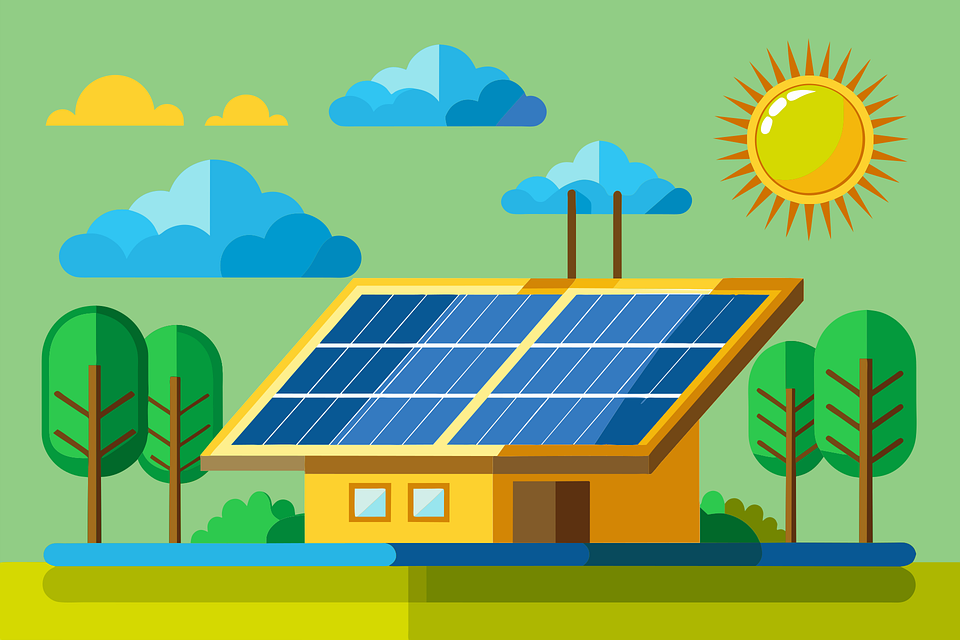Understanding Your Home’s Energy Needs
Your home is more than just a shelter; it’s a complex system with varying energy demands and must have to calculate Depths of Domestic Energy needs. From heating and cooling to lighting and appliances, understanding these needs is the first step towards efficient energy management.
Key Factors Influencing Domestic Energy Consumption
- Home Size and Insulation: Larger homes generally require more energy to heat and cool. Effective insulation can significantly reduce these needs.
- Climate and Location: Extreme temperatures increase energy use for climate control.
- Number of Occupants: More people often means higher energy consumption due to increased use of appliances, lighting, and hot water.
- Types of Appliances and Electronics: Older, inefficient appliances tend to consume more energy than modern, energy-efficient models.

Harnessing the Power of Energy Efficiency
Energy efficiency isn’t just about reducing your bills; it’s about responsible resource use. Here’s how to make your home more energy-efficient:
- Conduct an Energy Audit: A professional assessment can pinpoint areas for improvement.
- Upgrade Insulation: Seal air leaks and ensure your attic, walls, and floors have adequate insulation.
- Replace Inefficient Appliances: Look for Energy Star-rated models.
- Embrace LED Lighting: LED bulbs use significantly less energy and last longer than traditional bulbs.
- Use Smart Thermostats: These devices learn your habits and adjust temperatures accordingly, saving energy when you’re away.
- Unplug Unused Electronics: Many devices draw power even when not in use.
- Use Energy-Efficient Windows: Double or triple-paned windows with low-e coatings reduce heat loss.
Exploring Renewable Energy Options
Renewable energy sources offer a sustainable and environmentally friendly alternative to fossil fuels. Consider these options:
- Solar Energy: Solar panels convert sunlight into electricity, reducing your reliance on the grid.
- Wind Energy: If you live in a windy area, a small wind turbine can generate electricity for your home.
- Geothermal Heat Pumps: These systems use the Earth’s stable temperature to heat and cool your home efficiently.
- Hydroelectric Power: If you have a water source, a micro-hydro system can generate electricity.
The Future of Domestic Energy
The landscape of domestic energy is evolving rapidly. As technology advances, we can expect to see even more efficient appliances, smarter homes, and increased integration of renewable energy sources. The future holds a promising vision of homes that are not only comfortable but also sustainable and self-sufficient.

Conclusion
Navigating the Depths of Domestic Energy may seem daunting, but with the right knowledge and tools, you can make informed decisions that benefit both your wallet and the environment. By embracing energy efficiency and exploring renewable energy options, you can take control of your home’s energy future.
Frequently Asked Questions (FAQs)
Q1: How can I calculate my home’s energy consumption?
A1: Your energy bills provide a basic overview. For a detailed breakdown, consider an energy audit or use online tools that estimate usage based on your home’s characteristics and appliances.
Q2: What are the most cost-effective energy-saving measures?
A2: Sealing air leaks, upgrading insulation, and replacing inefficient light bulbs are relatively inexpensive ways to start saving energy.
Q3: Is renewable energy a viable option for my home?
A3: The feasibility of renewable energy depends on various factors, including your location, available resources, and budget. Consulting with a renewable energy specialist can help you assess the potential benefits.
Q4: Are government incentives available for energy-efficient upgrades?
A4: Many governments offer tax credits, rebates, or other incentives for energy-efficient home improvements and renewable energy installations. Check your local and national programs for eligibility requirements.
Q5: How can I stay updated on the latest energy-saving technologies?
A5: Follow reputable energy websites, blogs, and social media channels. Attend energy-related events and workshops in your area.
